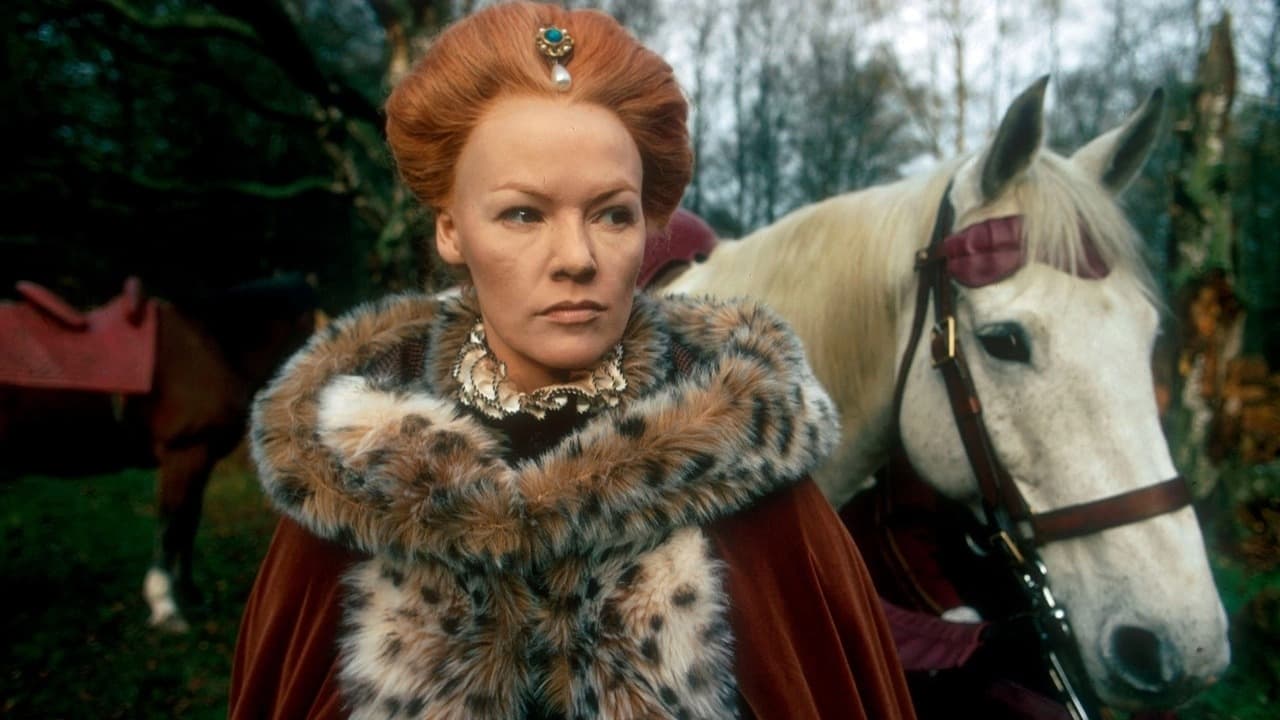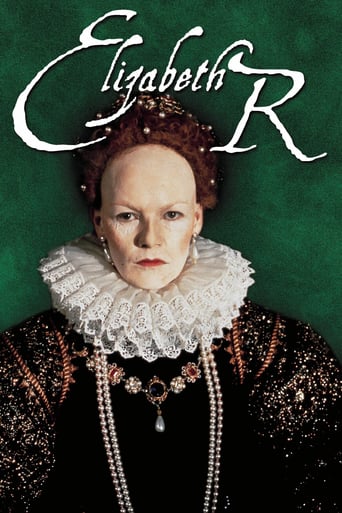

Such a frustrating disappointment
... View MoreExpected more
... View MoreDisappointment for a huge fan!
... View Morea film so unique, intoxicating and bizarre that it not only demands another viewing, but is also forgivable as a satirical comedy where the jokes eventually take the back seat.
... View MoreFaultless. I have been watching this series recently on YouTube and I cannot find one single aspect of it to whinge about. The portrayal of Elizabeth 1 is utterly breathtaking. The costumes perfect, lighting ditto, direction magnificent. The entire series is, for me, a sign that when everything is in place and knows its place - its been done with such skill that the expertise doesn't show, like a dancer on pointe, its seemingly effortless and yet, therein is its craft. The script is magnificent and one feels that the characters would approve of their portrayal. This character has been portrayed countless times yet, this series from the 1970's though showing its slip of age just a little, remains absolutely THE best.When the actress went into politics, I felt like shouting 'No...she's the queen!' Glenda Jackson is stunning, her face precisely shot from varying angles to accentuate her authority, her voice marvelous as she bellows out and acts the churlish girl when confronted by the possibilities of marriage. A wonderful cast. This is probably, for me, the most perfect historical drama ever made for television.
... View MoreI bought this DVD collection because of reviews here and elsewhere. I enjoyed 'A Man For All Seasons' and 'Elizabeth'. So, I attentively watched all episodes of this series.If you're new to high-end BBC dramatic series, you must understand that production design stops at costumes. The sets are studio flimsy. I found the dialogue to be modern Shakespearean pretentious. (No one in fact knows what words Elizabeth spoke nor with what accent she spoke them.)I pity any student forced to watch this series. But I strongly recommend it to anyone, captivated by a history book, and dreaming to see the characters on a screen. And while I prefer the series "Claudius" and "Les Rois Maudits", I have to admit something: Glenda Jackson's play is a tour de force. Ultimately, this series is worth it because of her. Margaret Thatcher said that she went home some days and cried. Acting, Glenda Jackson makes this comprehensible.
... View MoreI saw this over 30 years ago as a teenager and thought it was superb. I don't think I've seen it rerun since, but Glenda Jackson's astonishing performance has always stayed with me. I just got the DVD set and it's stunning, even better than I rememberedit. The research and writing are much more intelligent than almost anything currently produced (the BBC produced it).I had a love/hate reaction to the Cate Blanchett Elizabeth a few years back; I loved it because the performances and cinemetography were great, but hated the many, many historical errors in it. If you like movies that are both well-made and historically accurate, you can't get any better than Elizabeth R.
... View MoreOne of the best mini series ever shown on television.I am a lover of British costume drama and love that period of history and so must admit a biasThe series is written by depicting a significant event in Elizabeth's life in each episode - First as the young Elizabeth and the dangers she faced. The subsequent episodes show the early years on the throne and Elizabeth's early relationship with Dudley, her forays into the marriage game, the events surrounding Mary Queen of Scots' last days, the Spanish Armada and the last days of her reign and her relationship with Dudley's step son EssexUnlike the movie Elizabeth, this series is highly accurate. Each time I watch the episodes I pick up more details of the research that has gone into the series. For example the costumes are based on portraits of the Queen and gowns depicted in them. The inside scenes are based on the actual make up of Tudor palaces relatively small wood panelled rooms, not large stone Gothic chambers.Being a mini series the events of her reign can be given more depth. The actors and writers have more time to develop the characters and show the changing relationships between the characters. There is time to show the Queen's development from the young queen depicted in Elizabeth the movie to icon Elizabeth created for herself over time. The series is fascinating to watch for the transformation in each episode for the aging of the queen from the young puritanical princess, with simple clothes and no make up to the aged queen, who has to virtually put on a mask of make up to be seen in public.The mini series shows the enduring relationships the queen maintained with Dudley and Cecil.Glenda Jackson produces the definitive interpretation of Elizabeth, warts and all. Elizabeth was not always a "nice" woman, but she was a great queen and the series shows this.For anyone who enjoyed Elizabeth the movie I strongly recommend that they watch this series.
... View More